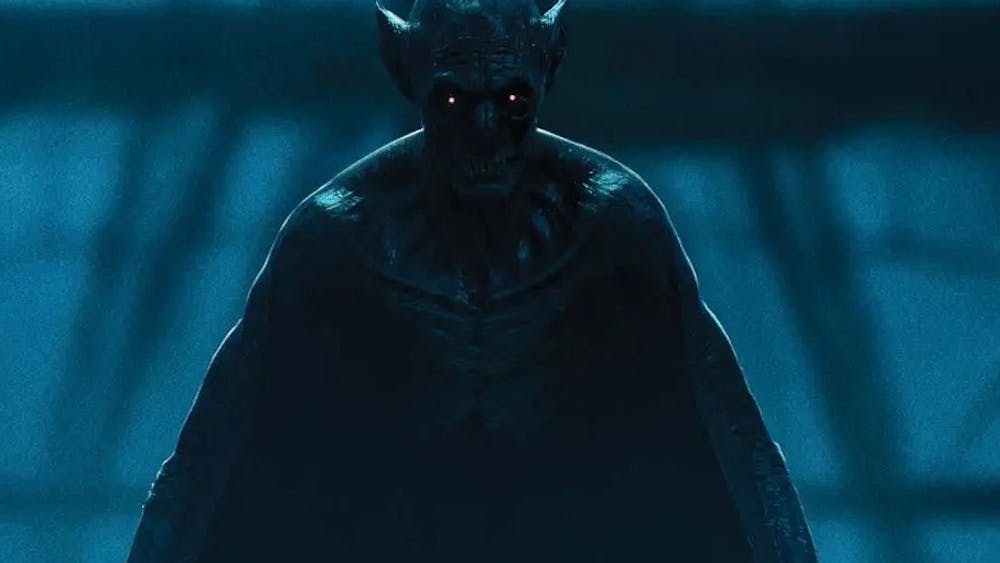"The Barber of Seville" by Gioacchino Rossini first premiered in 1816 in Rome and since then has remained one of the most popular operas. Its melodies have even crept off the operatic stage and into our television sets and would be easily recognizable to listeners with no operatic experience.\nThe performance Friday at the Musical Arts Center was an explosive success in that it went the extra mile to emphasize everything that makes the opera so popular. Two more performances are at 8 p.m. Friday and Saturday at the Musical Arts Center. Tickets are $15 to $35 or $10 to $20 for students. \nFirst and foremost, the cast was able to handle the challenging vocal parts, which involved comic and farcical voice modulation as well as the serious operatic demands on the voice. But the cast members not only had to be singers -- they had to be convincing comedians as well, and in this they were perhaps most successful. \nEach player gave such a convincing portrayal of his or her character, each of which was a comic exaggeration of actual personality types, that it was quite easy to forget that the on-stage characters were different from the people portraying them.\nOne of the most convincing roles and certainly the audience's favorite, according to the applause, was Jason Plourde as Figaro, the roguish barber who matches lovers in Seville, Spain. Figaro's sarcasm and lightheartedness play an important part in setting the mood.\nThe roles of the two lovers Figaro arranges to meet were equally well-filled. Rosina was played by Tiffany Rosenquist, whose soprano voice easily tackled the cadenza-like passages in her part written to display the singer's talent. \nFlorin Olimpio-Ormenisan as Count Almaviva had an excellent tenor voice, though it did betray his Romanian origins in its nasal quality, despite excellent Italian diction. His moment of glory came when Almaviva pretends to be a drunk soldier: the ability to cause such chaos on stage and maintain voice quality is certainly an impressive feat.\nAlan Dunbar played a convincing old curmudgeon as Bartolo, an old doctor who wishes to marry the young Rosina. Curtis Cook lent an excellent bass voice and a shabby appearance to his character, Don Basilio, a penniless priest who gives Rosina music lessons.\nThe orchestra ended up being one of the production's most impressive assets. It sounded a little sparse during the overture, as if its string section needed to be beefed up. After the voices were added and the orchestra crept below them as a supplement, any emptiness from the overture was dispelled by the change in function. Tempos were taken at full speed, which benefited the opera with a sense of motion and the jovial Italian flavor characteristic of Rossini. Flying passages such as the end of Act II allowed the orchestra to showcase its full potential independently of the vocalists.\nThe scenery, designed by C. David Higgins, was beautiful and true to the Spanish style. I have been all over Spain, and the style affected on stage was that of Old Castile -- pinkish clay buildings. In Sevilla, the architecture is much more colorful and has a Middle Eastern influence, so a splash of color would have subtly enhanced the visual element, impressive as it already was.\nThe costumes and props generally revolved around the time of the opera's first production -- 1816 or so -- with Bartolo wearing a wig and the count dressed in early 19th-century Spanish military uniform. There were, however, a few troubling anachronisms, such as cameras and photographs, which didn't appear until two decades later. Aside from these, the costumes were well-designed and not overtly gaudy, which made them seem natural and appropriate.\nIt was also nice to see a Rossini opera performed in Italian because the character of the music is so unmistakably Italian that an English translation would seem clumsy and forced. Congratulations to whomever decided to break with the IU custom of translating comic operas into English.\nThe opening production of "The Barber of Seville" brought a packed house to a standing ovation that was well-deserved. If the cast only improves with the amount of performances, then this weekend's shows should be spectacular. They come highly recommended.
Beautiful music and many laughs from Rossini
Get stories like this in your inbox
Subscribe





